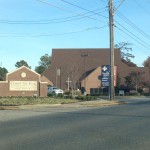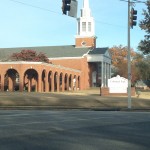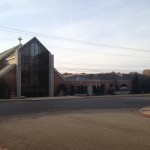Grit and Grind has become a part of our language here in Memphis. This phrase, that began with a player describing his and his team’s performance after a game during the playoffs in 2011, has become the motto for an entire city. Over the years, one of the things that has become common knowledge here in Memphis, for those who follow our sports teams, is that no matter who is playing, whether the Grizzlies or the Tigers, the game will not be an easy victory, and if they lose they will not lay down and let it happen. It will have been a hard fought battle to the end. As my dad says, the team will have “played with a lot of heart.” Tony Allen described his team that night as playing with a lot of heart, grit, and grind, but this idea of playing with heart, grit, and grind is not new here in the Bluff City. Heart, grit, and grind has always been a way of life here in Memphis, we just did not have a way to express it. Growing up here, I have always noticed a certain resiliency we Memphians, and further us Southerners, have that is not shared by other people in other cities. Things in life are not given to us here. We must pull ourselves up by our boot straps and make our own way.
In class we talked about how after the Civil War we decided, whether it was our decision our made for us does not matter, that we did not want to be like the North. Everything the North did was bad and we wanted to be the opposite. This might have been fine in a displeased post-war South, but the lack of change and upgrading set us up for a substandard way of life in the present. This unfortunate truth has still not changed. Our schools, housing, politics, infrastructure, every aspect of our lives, is not up to the standard set forth by the government. In a lot of cases we must teach ourselves growing up because the teachers did not do an adequate job. The beauty of our situation though is that we do not give up and accept our life as it is. We wake up every morning and strive for something better. We are told as children that if we dream it we can attain it, and I think this is true for Memphis. We always expect to hear terrible things about our city when we turn on the news, and dread telling people where we live because we would have to convince them that it is truly a great place to live. The truth is, though, that we do live in a great city. We are a city that never says die. We accept our inadequacies and learn to move past them. Our identity as a person, as a team, as a city, is the same. Hard work. Determination. Where there’s a will, there’s a way. Never say die. Grit and Grind. That is Memphis.















